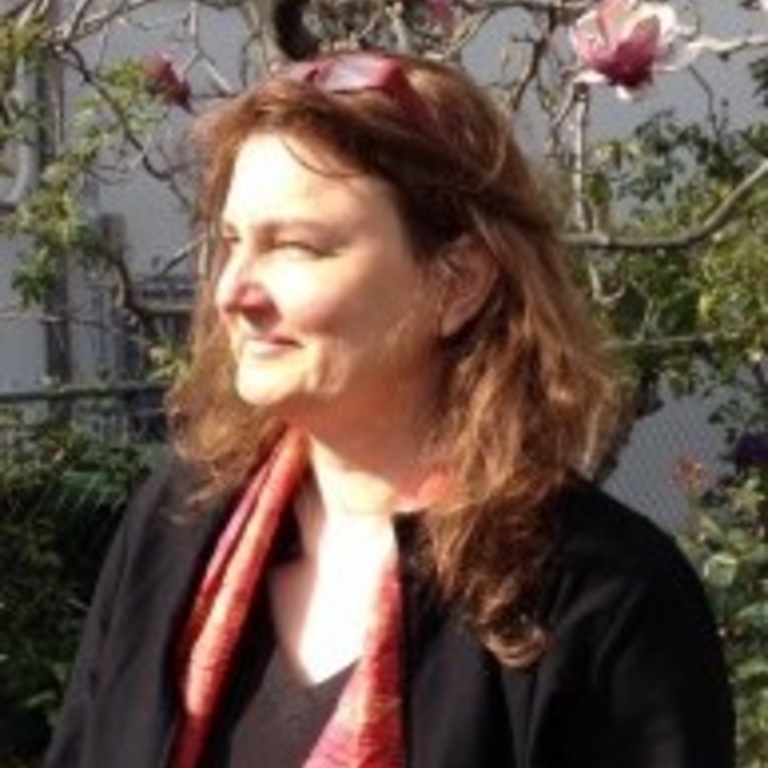Elke Heckner, Ph.D.
I am currently completing my book, Memories of Futurity: Remapping Visual Representations of the Holocaust and Genocide for publication. The book traces important paradigm shifts in cinematic and visual representations of the Holocaust that allow transnational Holocaust memory to be conceptualized from its very beginnings in terms of the notion of futurity. I have also published on second- and third generation Holocaust memory and film.
My publications include a recent book chapter (2023) “Numbers and portraits: Reframing Auschwitz tattoos in Numbered (2012),” Emerging Trends in Third-Generation Holocaust Literature (ed. Allen Berger and Lucas Wilson), Lexington Books, Lanhan: Rowman and Littlefield, 2023, 83-97 and a book review on Jennifer Cazenave, An Archive of Catastrophe: The Unused Footage of Claude Lanzmann's Shoah. SUNY Press, 2019 published in Fall 2022 in Holocaust and Genocide Studies. My article on Marianne Hirsch’s notion of postmemory “Whose Trauma is it? Identification and Secondary Witnessing in the Age of Postmemory,” Visualizing the Holocaust, David Bathrick, Brad Prager, Michael D. Richardson (eds). Rochester: Camden House Press, 2008, 62-85 continues to be widely cited.
Last year I received an International Programs Summer Research fellowship which enabled me to work on my chapters for the book project Memory in Action: Public Memorial Culture in the Age of Post-Truth.
As part of an ongoing engagement with the 2020 Nagorno-Karabakh war, I presented in June 2022 and May 2023 on video testimonials and the destruction of cultural heritage at an international human rights conference “Human Rights and Accountability: A path Forward for Nargorno-Karabakh (Artsakh)” sponsored by the Center for Truth and Justice. I also examined how the language of green energy is used in indigenous Armenian lands to perpetrate cultural genocide. With International Programs (IP) and the Center for Truth and Justice (CFTJ), I also helped initiate an educational partnership between the University of Iowa and the Artsakh State University. As part of this partnership, the University of Iowa Law School will host an informational event “International Human Rights in Artsakh: From Evidence to Prosecution” on September 8, 2023, featuring Judge Gassia Apkarian and Arsiné Grigoryan.
See information about the event here: https://events.uiowa.edu/81076
In Fall 2022 I was awarded an International Programs Global Curriculum Development Award to design a course on “Accountability, Justice and War Crimes: Current Trends.” This course introduces students to current juridical and non-juridical approaches to hold perpetrators (e.g., state actors and individuals) of war crimes, torture or crimes against humanity accountable. Consulting recent case studies of events (such as Russia’s invasion of Ukraine), it examines new possibilities and limitations that have emerged around central issues in international criminal and humanitarian law. The course also highlights the role of NGOs helping to amplify the voices of survivors and to seek justice for these survivors of war crimes. Students will examine two key concepts that have become prominent over the last couple of years in war crimes prosecution: (1) the notion of universal jurisdiction and (2) the issue of corporate accountability. Both concepts will be contextualized within the history of international legislation on genocide prevention/prosecution to highlight how they enhance and strengthen existing international legislation on the prosecution of war crimes and genocide.
Last year I received an International Programs Summer Research fellowship which enabled me to complete the research for my chapters on Memory in Action: Public Memorial Culture in the Age of Post-Truth.
I serve as the coordinator for the second-year German language sequence. I am also currently director of the Obermann-sponsored Faculty Working Group Circulating Cultures as well as director of the DWLLC-sponsored Global Memory Studies Humanities Lab.
Courses at the University of Iowa:
Film and Literature of the Holocaust (GRMN:2618:0001)
Politics of Memory: Holocaust, Genocide, 9/11 (GRMN:2675:0001),
German Cinema: Greatest Hits (GRMN:2630:0001)
Cyborgs, Monsters and the Uncanny (GRMN:2785:0001)
Accountability, Justice and War Crimes: Current Trends (GRMN:2949)
German Film (GRMN:3236:0001)
Composition and Conversation (GRMN:3103:0001)
Intermediate German I & II
Research First-Year Seminar: Museums, Memorials, Memorials
- German
- Holocaust and Genocide Studies
- Armenian Genocide, Film and Media Studies
- Museum Studies
- Memory and Trauma Studies
